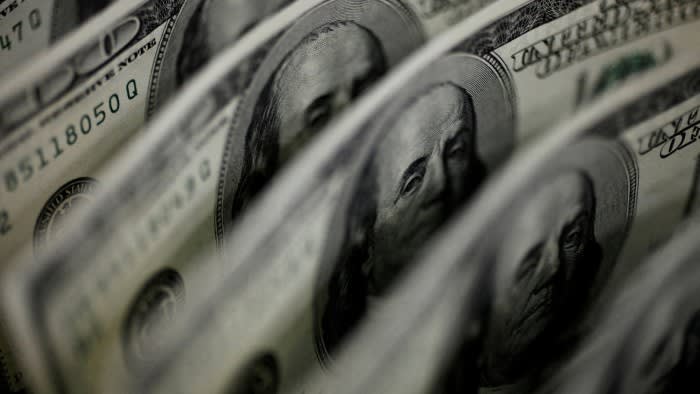Unlock the US Election Countdown newsletter for free
The stories that matter about money and politics in the race for the White House
The author is a professor of economics and political science at the University of California, Berkeley
The fate of the dollar, like many other things, depends on the outcome of the US presidential election in November of this year. Everyone agrees on that. They just disagree on the direction of the turn.
The implications of a Democratic victory are relatively uncontroversial. The dollar has been strong in recent years because President Joe Biden has advocated a heavy dose of fiscal stimulus and given the Federal Reserve freedom to raise interest rates in response to inflation. This mix of loose fiscal and tight monetary policies has created a strong currency, as the textbooks predict.
But with the budget deficit already large and the national debt soaring to levels that many Americans find alarming, a re-elected Biden — or a victory for a Democratic replacement if he steps down after last week’s debate — would have less fiscal room to maneuver. Meanwhile, the Fed could cut its policy rate as inflation continues to decline, as it likely will. The policy mix would thus be less dollar-positive in a second Biden term. This by no means portends a dollar crisis, but it is a recipe for a somewhat weaker dollar.
Finally, the Biden administration has been careful to work with allies in imposing financial sanctions on Russia. Therefore, the weaponization of the dollar has not led to widespread diversification of reserves that could weaken the currency. Cooperation meant other countries potentially targeted by sanctions had nowhere to go.
The monetary implications of a second presidential term for Donald Trump are harder to predict. It’s tempting to extrapolate from history, as a team of Citi analysts did earlier this year. The dollar rose by about 5 percent after Trump’s surprise victory in 2016, they noted. The dollar fell by a similar amount around the time of his election defeat in 2020. On these grounds, it’s tempting to think that a Trump victory in 2024 would result in a stronger dollar again.
Trump does indeed plan to implement more tax cuts for corporations and the wealthy. He is less likely to be critical of debt and deficits if he writes them himself. And we have seen how expansionary fiscal policy can be positive for the dollar.
Likewise, new tariffs on imports, despite their costs, are also likely to support the dollar. Tariffs make imports more expensive. They encourage consumers to shift their spending to domestic goods, which also increases their prices. The Fed is inclined to respond to the resulting inflation by raising rates again, which would strengthen the dollar. A stronger dollar exchange rate would reduce import prices, at least partially, allowing the central bank to achieve its disinflationary goal.
But other scenarios are also conceivable. As a self-proclaimed low interest rate man, Trump could put pressure on the Fed not to respond in this way. The result, continued inflation, would be dollar negative. Trump’s advisers have already advocated changing the Fed’s legal position, mandate or procedures to require the Fed to consult with the president or even take marching orders. Either way, in May 2026, Trump as president would have the simple option of appointing a more docile Fed chairman. Presumably he would do so after learning from what he describes as his “mistake” in choosing Jay Powell, who was sworn in in 2018.
In addition, there are rumors that influential Trump advisers are plotting a weaker dollar. They saw how the currency’s strength offset the impact on the trade balance of tariffs imposed during Trump’s first term. They seem determined to prevent the same thing from happening again.
They will likely call for additional sanctions on countries that fail to prevent their currencies from falling against the dollar. They can point to the 1985 Plaza Accord as an example of how foreign governments can be pressured by the US to adopt policies that strengthen the exchange rate. Another idea is a tax on foreign purchases of U.S. assets to prevent such foreign investments from supporting the dollar at high levels.
Whether these dubious measures would actually achieve their goal of strengthening the competitive position of American industry is questionable. A tax on foreign capital that discourages investment in the U.S. would not make for a more competitive U.S. economy. Threatening countries with more tariffs if their currencies don’t fall may only have the unwanted effect of further strengthening the dollar. But, dubious or not, these measures cannot be ruled out.
